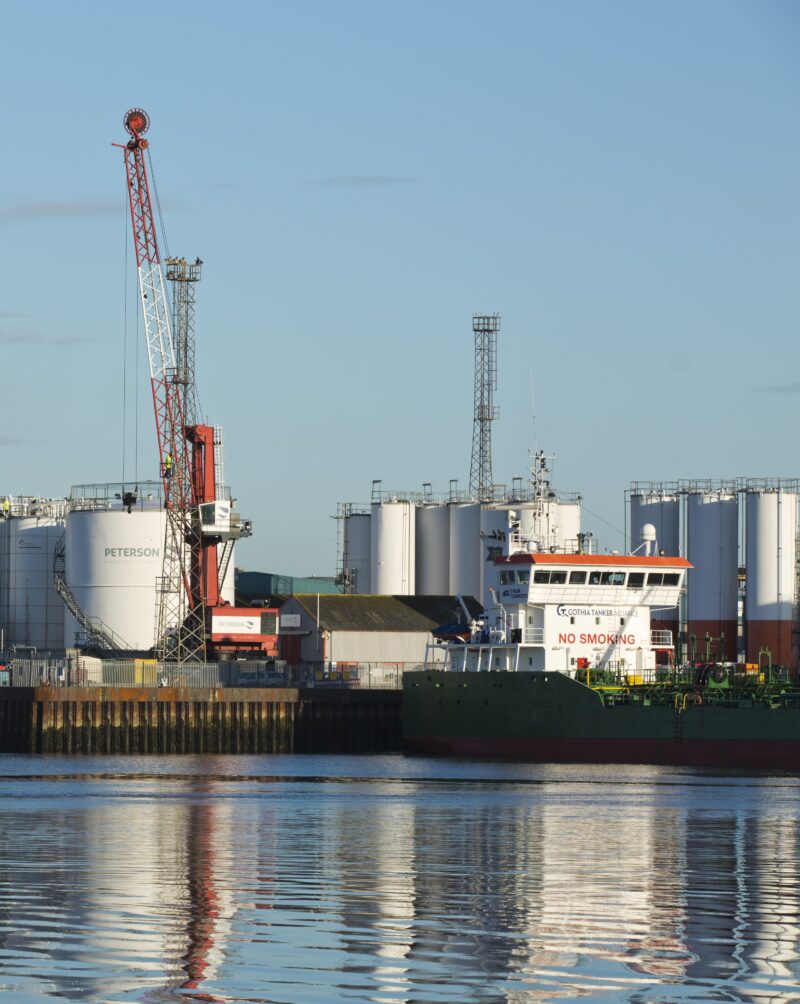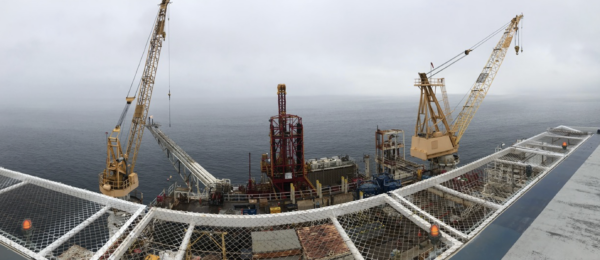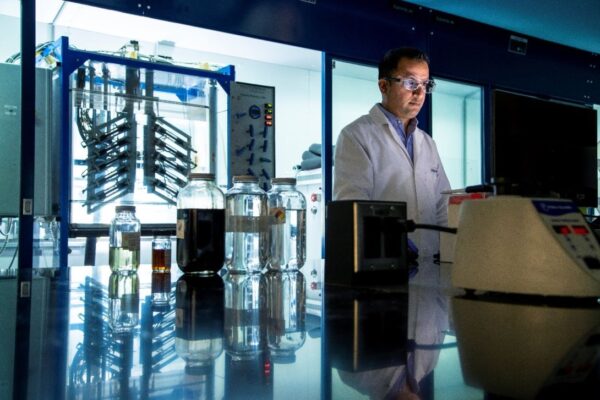
Successful fuel enzyme trial
Trial of a fuel enzyme, delivering up to 15% savings on baseline consumption and CO2 emissions for a major Aberdeen energy operator.




Details
Following the success of similar trials in the SNS Pool in Den Helder, Peterson Energy Logistics set out to conduct a 6-month trial using a fuel enzyme in an Aberdeen-based client’s marine vessel.
The enzyme (which is compliant with all international fuel standards) is derived from tree leaves and its addition ensures faster and more optimal combustion, resulting in a decrease in fuel consumption and the emission of harmful exhaust gases, soot, and particulate matter. In addition, the enzyme cleans the entire fuel system, from storage tank to engine, preventing problems with microorganisms in fuels.
Marine Gas Oil (MGO) is currently the primary fuel for powering Platform Supply Vessel (PSV) fleets and combining the fuel enzyme with MGO is proving to reduce fuel consumption and carbon emissions by 10-15%.
Peterson has a partnership with the enzyme provider, enabling them to introduce and supply the product to the client. The evidence and results gained from Peterson’s success with the enzyme in Den Helder was used to springboard the trial in Aberdeen and mitigate any concerns that the enzyme might have a detrimental impact on vessel engines or associated equipment while ongoing trials take place.
To facilitate the trial, Peterson Energy Logistics introduced the enzyme provider to the vessel owner and answered all technical questions. The Peterson fuel team led the project, providing the enzyme and working closely with the operator and vessel owner to agree a method of dosing and delivery that met the technical requirements of the vessel and safety handling needs.
Procurement, customs, delivery and safety controls were all managed in-house by the Peterson team, and the vessel used an independent management system to gather and analyse the data, ensuring all results recorded were accurate and robust.

Metrics
The trial was completed successfully, demonstrating 9.3% savings in fuel consumption in the first 3-4 months, which increased to 15% in months 5 and 6. This equates to savings of over 290m3 of MGO per vessel per annum, which has a value of over £200,000, resulting in a reduction of over 800 tonnes in CO2 emissions.
To give wider context to the scale of savings, there are currently 197 platform supply vessels and 56 anchor handlers in the Northern North Sea. Therefore, should the whole Northern North Sea fleet utilise the fuel enzyme with savings of 10% in fuel consumption, we could potentially see cost savings of up to £74 million (accounting for the fact that anchor handlers burn three times as much fuel as platform supply vessels). This in turn equates to 292,000 tonnes of carbon being removed from the marine supply chain.

Any other relevant information
Following this success, the client has rolled out the same process to a second vessel and a second operator has since copied the trial in an existing vessel from their fleet.
The savings identified are consistent with those found by Peterson in their earlier trial carried out in the SNS Pool in Den Helder. The fuel enzyme has now been introduced to the full fleet of vessels in the SNS Pool, resulting in a reduction of 3,000 tonnes in CO2 emissions and fuel cost savings of €937,885 in year one.
Find out more:
https://www.onepeterson.com/service/energy-logistics/





